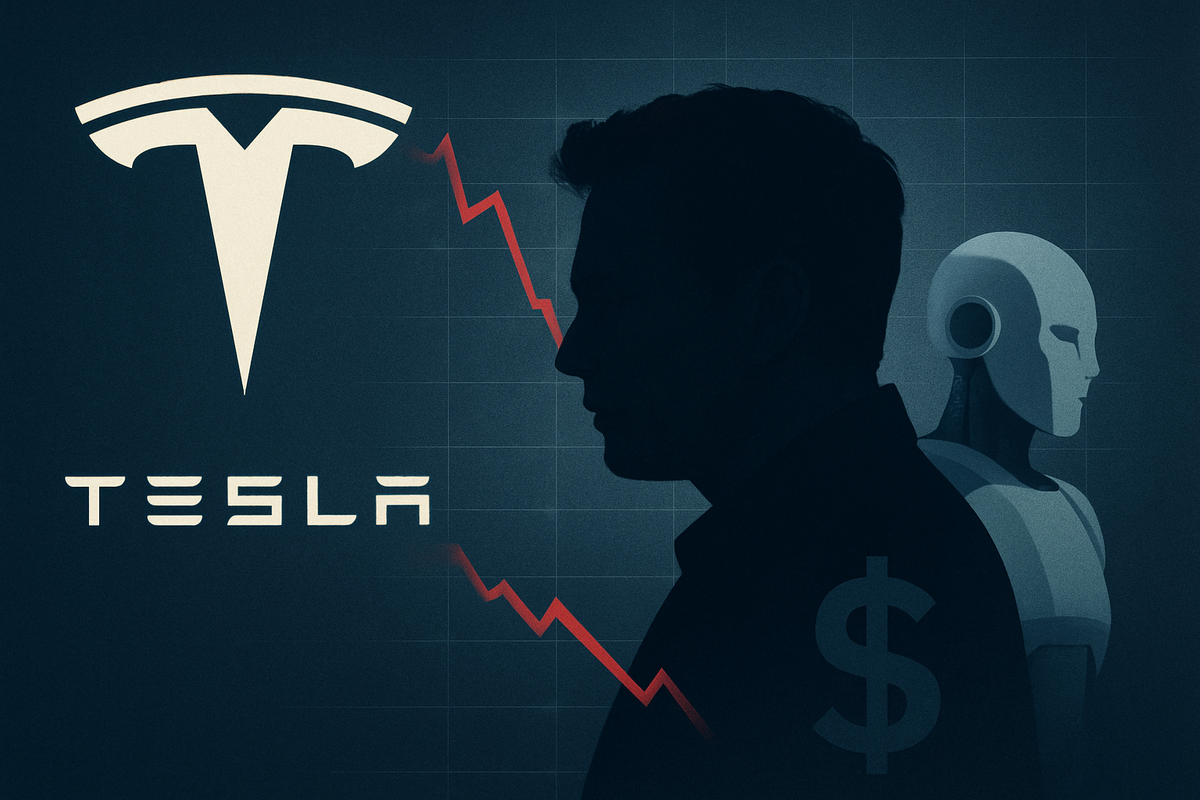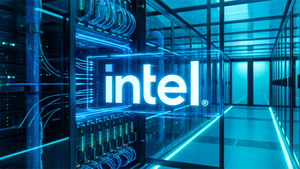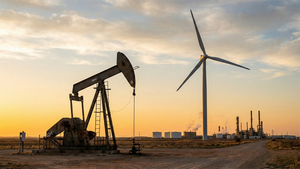
Tesla (NASDAQ: TSLA) found its stock price under pressure this week, dipping in the wake of a pivotal shareholder vote on CEO Elon Musk's colossal $1 trillion pay package. Despite overwhelming approval from investors on Thursday, November 6, 2025, the electric vehicle giant's shares saw a notable decline, reflecting a complex interplay of investor sentiment, concerns over dilution, and broader market headwinds. This event casts a long shadow over Tesla's immediate valuation and sparks renewed debate about corporate governance and the future trajectory of one of the world's most scrutinized companies.
The approved compensation plan, designed to incentivize Musk to achieve audacious growth targets over the next decade, has become a focal point for both ardent supporters and skeptical analysts. While the board and a majority of shareholders view it as essential for retaining Musk's visionary leadership, the stock's recent performance suggests that not all market participants are fully aligned with the optimistic outlook, or perhaps, are reacting to wider economic currents impacting the tech sector.
Detailed Coverage of the Event
The saga surrounding Elon Musk's unprecedented pay package reached its climax on November 6, 2025, when Tesla shareholders, in a decisive move, voted to approve the compensation plan. This approval came despite vocal opposition from several large institutional investors, including Norway's sovereign wealth fund and the California Public Employees' Retirement System (Calpers), who cited concerns over the package's "unprecedented scale" and potential shareholder dilution.
The events leading up to the vote were marked by significant market speculation and volatility. On Tuesday, November 4, Tesla's stock experienced a 3.7% drop after Norway's sovereign wealth fund publicly announced its intention to vote against the package. This pre-vote decline signaled investor apprehension and the influence of major stakeholders on market sentiment. Even with the resounding approval, which saw over 75% of votes cast in favor, Tesla's shares continued their downward trend, closing approximately 4% lower on Friday, November 7, and showing further weakness in pre-market trading. This brought the company's year-to-date return to a modest 7%.
Key players in this event include Elon Musk himself, whose future at the helm of Tesla was implicitly tied to the package's approval, and the Tesla board, which vigorously advocated for the plan as crucial for retaining Musk's focus and vision. Institutional investors, both those in favor and those opposed, also played a significant role in shaping the narrative and influencing market reactions. The initial market reaction, characterized by a stock dip even after approval, suggests that while shareholders endorse Musk's leadership, broader market sentiment, including a general downturn in the tech sector affecting giants like Nvidia (NASDAQ: NVDA), Alphabet (NASDAQ: GOOGL), and Meta (NASDAQ: META), also contributed to Tesla's recent struggles. The approval, however, reaffirms the market's belief in Musk's ability to drive the company towards ambitious, albeit challenging, goals in AI, robotics, and expanded vehicle production.
Companies That Might Win or Lose from the Event
The approval of Elon Musk's pay package and Tesla's reinforced commitment to an aggressive, vertically integrated strategy in EVs, AI, and robotics will undoubtedly create winners and losers across various industries. Tesla's pivot towards becoming an "AI and robotics powerhouse" beyond its automotive roots signals a new era of intense competition.
In the electric vehicle (EV) sector, Tesla's continued aggressive pricing and relentless pursuit of innovation will intensify pressure on competitors. Smaller, less established Chinese EV startups, while numerous, may struggle to match Tesla's scale and pricing power, potentially leading to consolidation or market exit for some. Legacy automakers heavily reliant on internal combustion engine (ICE) technology and slow to transition to competitive EV platforms face significant risks of losing market share and profitability. Conversely, Chinese EV leaders like BYD (HKG: 1211), Xiaomi (HKG: 1810), Nio (NYSE: NIO), and Xpeng (NYSE: XPEV) are poised to continue their strong growth, especially in their home market and expanding globally, leveraging diverse lineups and advanced battery technology. Traditional automakers that have made substantial EV investments, such as Volkswagen (FWB: VOW), Ford (NYSE: F), and General Motors (NYSE: GM), along with Hyundai (KRX: 005380) and Kia (KRX: 000270), are better positioned to adapt and compete, especially by focusing on distinct market segments or leveraging existing manufacturing scale.
Beyond vehicles, Tesla's ambitious targets for Robotaxis and Optimus humanoid robots will reshape the AI and robotics landscape. Established autonomous driving players like Waymo (owned by Alphabet, NASDAQ: GOOGL) and Cruise (owned by General Motors, NYSE: GM), with their extensive real-world driverless miles and multi-sensor approaches, are strong contenders in the geofenced ride-hailing space, potentially maintaining their lead in specific operational areas. However, companies solely focused on vision-only autonomous driving without Tesla's data might struggle. In humanoid robotics, specialized firms such as XPeng (NYSE: XPEV) with its IRON robot, Agility Robotics (privately held, but a key player with Digit), Figure AI (privately held, with Figure 02), and Boston Dynamics (owned by Hyundai, KRX: 005380) will face increased competition. Yet, these companies might also find opportunities in niche applications or by focusing on specific industry needs where Tesla's general-purpose Optimus may not be a direct fit. AI chip manufacturers like TSMC (NYSE: TSM) and Samsung Electronics (KRX: 005930), and potentially Intel (NASDAQ: INTC), stand to benefit in the short to medium term from Tesla's demand for custom AI chips, even as Tesla aims for its own "Terafab" in the long run.
Tesla's deep vertical integration strategy will also have a mixed impact on its suppliers. As Tesla scales its in-house 4680 battery cell production and builds its own lithium refinery, external battery cell manufacturers like Panasonic (TYO: 6752) may see reduced demand from Tesla in the long term, pushing them to seek other customers. Generic component suppliers for traditional automotive parts will also face declining opportunities. Conversely, raw material suppliers for batteries (e.g., lithium, nickel, with BHP (ASX: BHP) as a nickel supplier), specialized manufacturing equipment providers for Gigafactories and advanced chip fabs, and niche hardware component suppliers for Optimus robots could see increased demand as Tesla expands its production and technological capabilities.
Wider Significance and Broader Implications
The recent developments at Tesla, specifically the stock volatility and the approval of Elon Musk's gargantuan pay package, resonate far beyond the company's immediate balance sheet, signaling profound shifts across several critical industries and challenging established norms of corporate governance. These events underscore a pivotal moment for the electric vehicle (EV) market, the burgeoning fields of artificial intelligence (AI) and robotics, and the ongoing debate surrounding executive compensation.
Firstly, in the EV market, Tesla's stock performance reflects a significant deceleration in global sales growth and an intensification of competition. This trend is forcing all manufacturers to innovate aggressively, streamline costs, and engage in fierce price competition. The market is maturing, and Tesla's once unassailable dominance is being eroded by both nimble Chinese manufacturers and re-energized traditional automakers. This environment is likely to spur consolidation, as smaller players struggle to maintain profitability, and will push the entire industry towards greater efficiency and technological advancement.
Secondly, the explicit AI and robotics milestones embedded in Musk's pay package solidify Tesla's strategic pivot towards becoming a leader in these transformative technologies. With ambitious targets for Full Self-Driving (FSD) technology, robotaxis, and humanoid robots (Optimus), Tesla is intensifying the race in AI-driven mobility and general-purpose robotics. This will undoubtedly spur further investment and research across the tech industry, accelerating the development and deployment of AI applications. However, it also brings into sharper focus the significant regulatory and ethical challenges associated with these advanced technologies, particularly concerning safety, liability, and the societal impact of autonomous systems and intelligent robots.
Thirdly, Musk's pay package, potentially the largest in corporate history, sets a new, albeit controversial, benchmark for executive compensation. It highlights a trend of tying CEO remuneration to extremely ambitious, long-term performance targets, often involving speculative future technologies. This case reignites debates about the fairness and effectiveness of such colossal awards, their potential for shareholder dilution, and the critical role of independent boards in overseeing them. The legal challenges that preceded the current approval, including a Delaware judge voiding an earlier package, underscore increased scrutiny on corporate governance and shareholder rights, potentially leading to stricter regulatory oversight or increased shareholder activism in other public companies. Regulatory bodies are now more attuned to the nuances of executive pay structures, especially in companies where a founder exerts significant influence.
Historically, debates over excessive executive pay have recurred, often leading to calls for reform. While the scale of Musk's package is unprecedented, the phenomenon of a "superstar CEO" whose perceived indispensability justifies extraordinary compensation has historical parallels. However, history also shows instances where substantial pay packages did not guarantee sustained performance, raising questions about the direct correlation between such high incentives and long-term shareholder value. This event will serve as a potent case study for future discussions on the complex interplay between innovation, market dynamics, leadership, and public accountability in the modern corporate landscape.
What Comes Next: Navigating a Trillion-Dollar Future
The shareholder approval of Elon Musk's ambitious pay package on November 6, 2025, sets the stage for a critical decade for Tesla (NASDAQ: TSLA) and will send ripple effects throughout the electric vehicle (EV), artificial intelligence (AI), and robotics industries. In the short term, the market's reaction has been mixed, with initial confidence tempered by ongoing volatility, reflecting both renewed belief in Musk's leadership and lingering concerns about valuation and the sheer audacity of the company's targets. The immediate future will likely see continued scrutiny of Tesla's delivery numbers and profitability in its core EV business, even as the narrative increasingly shifts towards its AI and robotics ventures.
Long-term, the compensation package inextricably links Musk's personal wealth to Tesla's ability to achieve staggering milestones: an $8.5 trillion market capitalization, 20 million vehicle deliveries annually, 1 million operational robotaxis, and 1 million Optimus humanoid robots. This incentivizes Musk to dedicate his formidable energy to Tesla's transformation into a technology-driven AI enterprise. Consequently, Tesla is expected to pivot even more aggressively into AI and robotics development, making these sectors the core drivers of its future valuation. This includes intensifying efforts on Full Self-Driving (FSD) technology, the Cybercab robotaxi network, and the Optimus humanoid robot. Musk's hints at building a "gigantic chip fab" (terafab) also signal a strategic move towards deeper vertical integration in AI hardware, potentially impacting current chip suppliers like TSMC (NYSE: TSM) and Samsung Electronics (KRX: 005930) in the very long run, while creating opportunities for them in the near term.
Emerging market opportunities are immense, particularly in the projected multi-trillion-dollar markets for robotaxis and humanoid robots. Tesla aims to lead a "Physical AI Era," leveraging its AI capabilities to redefine industries from manufacturing to logistics. However, the challenges are equally formidable. The milestones tied to Musk's pay are "extraordinarily difficult and challenging," requiring unprecedented technical breakthroughs, massive scaling of production, and navigation of complex regulatory and infrastructural hurdles. Competition remains fierce across all fronts: in EVs from traditional automakers and Chinese giants like BYD (HKG: 1211), and in robotaxis (e.g., Waymo, owned by Alphabet, NASDAQ: GOOGL) and humanoid robots (e.g., Figure AI). Concerns about Musk's divided focus across his multiple ventures (SpaceX, xAI, Neuralink) and the potential impact of his political stances on Tesla's global brand image will also persist.
Potential scenarios range from a "bull case" where Tesla flawlessly executes its vision, leading to Musk becoming the world's first trillionaire and Tesla reaching its $8.5 trillion market cap, solidifying its dominance across multiple cutting-edge industries. A "mixed success" scenario might see Tesla achieving some, but not all, targets, maintaining EV leadership while making substantial progress in AI and robotics, potentially reaching a $2-3 trillion market cap by 2026. Conversely, if challenges intensify—due to an EV slowdown, significant AI/robotics delays, or execution risks—Tesla could experience ongoing stock volatility and fail to meet its most ambitious targets, leading to a more modest valuation. The implications for the broader EV sector include continued pressure on rivals to innovate, while in AI and robotics, Tesla's aggressive push will serve as a significant catalyst, intensifying competition and driving rapid advancements across both hardware and software.
Comprehensive Wrap-up: Tesla Navigates Stock Volatility Amidst Historic Executive Pay Deal and Ambitious Future Vision
Tesla stands at a critical juncture, balancing the established challenges of the EV market with ambitious, futuristic aspirations in AI and robotics, all underpinned by the controversial leadership and compensation of Elon Musk. The shareholder approval of Musk's unprecedented pay package, despite significant opposition and the company's recent stock volatility, represents a profound vote of confidence in his vision to transform Tesla into an "AI and robotics powerhouse."
Key takeaways from this period include the clear acknowledgment of a maturing EV market, where Tesla's once-unchallenged dominance is being tested by aggressive competition and macroeconomic headwinds. Simultaneously, the company's strategic pivot towards AI and robotics, explicitly incentivized by the pay package, signals a future where Tesla's valuation may be increasingly driven by speculative technological advancements rather than solely automotive sales. This shift, however, brings with it immense technical, regulatory, and ethical challenges, as well as intensified competition in these emerging sectors. The ongoing debate around executive compensation and corporate governance, particularly concerning the independence of boards and the "key-person risk" associated with influential founders, will continue to shape public and investor perception.
Moving forward, the market outlook for Tesla remains highly polarized. While proponents foresee a multi-trillion-dollar future driven by robotaxis and humanoid robots, skeptics point to the immense execution risk, historical delays, and the persistent challenges in the core EV business. The approval of the pay package may provide short-term stability by clarifying leadership, but it does not erase the fundamental hurdles.
For investors in the coming months, close monitoring of several key areas is paramount:
- Execution of AI and Robotics Initiatives: Watch for tangible progress, credible demonstrations, and realistic timelines for FSD, Cybercab, and Optimus. Delays or setbacks here could significantly impact valuation.
- EV Sales and Profit Margins: Despite the AI focus, the performance of Tesla's core automotive business, especially global sales figures and profitability in competitive markets, remains a critical indicator of financial health.
- New Product Rollouts: The success of more affordable vehicle models will be crucial for addressing slowing demand and expanding market share.
- Corporate Governance and Legal Developments: Any further legal challenges or scrutiny of Tesla's governance practices could influence market sentiment.
- Musk's Focus and Involvement: Given the package's intent to secure his dedication, investors will scrutinize Musk's time and attention devoted to Tesla versus his other ventures.
The coming months will be crucial in determining whether the faith placed in Musk's audacious vision translates into tangible progress and sustained shareholder value, or if the challenges prove too great for even a trillion-dollar incentive. Tesla's journey will undoubtedly continue to serve as a bellwether for innovation, market dynamics, and corporate leadership in the 21st century.
This content is intended for informational purposes only and is not financial advice





